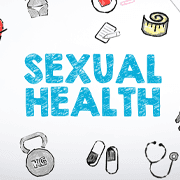Healthy Diet & Nutrition For Monsoon
In This Article
Healthy Diet & Nutrition For Monsoon
Pooja
Updated on July 06, 2024
Medically verified by Dr. Arya
Fact checked by Sreemoyee

Wellness
10 min read
After the scorching and unbearable heat from the summer, finally the monsoon season has arrived.
However, we need to keep in mind that the monsoon welcomes many uninvited health issues along with it.
As the monsoon adversely affects the immune system of our body , we need to take necessary precautions in what we consume and drink during this season.
Karepedia is here with a healthy diet and nutrition plan for you to consider this monsoon. Let’s dive in.
What All You Can Add in Your Diet?
Some of the tips that you should follow during the monsoon in order to maintain a nutritional diet are listed below:
-
Eat Seasonal Fruits : Adding fruits such as apples , jamuns, litchi, plums, cherries , peaches , papaya, pear and pomegranate into your diet will be helpful for boosting your immune system. However, consuming fruits such as watermelon and muskmelon are not recommended.
-
Garlic: Garlic will help in improving your immune system and is very beneficial during monsoon time.
-
Include Probiotics : Probiotics significantly contribute to good gut health. This will avoid the possibility of bad bacteria entering into the body.Instead of consuming milk, you can have curd or yogurt.
-
Increase the Intake of boiled water : Consume only boiled or purified water. Avoid drinking tap water directly as this can make you prone to infections or contamination.
-
Consume Bitter Vegetables : Some of the vegetables like methi , bitter gourd , neem and turmeric in addition to your diet can help in preventing infections.
-
Steam the food : Steam and use all the possible food before eating during the rainy season.
-
Herbal Warm Water: You can consume a herbal decoction which is prepared from spices such as ginger , cloves , pepper and cardamom. This will help you in soothing your throat and if you have fever in this monsoon.
-
Sprouts: In this monsoon, sprouts are considered as a good source of protein. It can be taken as a healthy snack which boosts your immune system thus helping your body to fight against the germs.
-
Herbal Tea infused with honey : Consuming herbal tea infused with honey will keep you warm and safe from cold and flu while boosting your immunity.Since honey acts as an antibacterial agent.
-
Turmeric Milk : Turmeric is a magic herb which can be consumed in any season. It is rich in anti inflammatory properties , thus helping in improving the immune system and keeps infection at bay. Drinking a glass of lukewarm turmeric milk before sleep is recommended
-
Lemon : Lemon is rich in Vitamin C and helps in strengthening our immunity power. Adding Vitamin C rich foods into your diet will help you to fight infection and will also aid in easy digestion. It can also contribute to bone health. Zest or lemon pulp contains a rich amount of bio active compounds and flavonoids.You can consume lemon by adding it into your salad or as a juice.
-
Dry fruits and nuts : Nuts are an excellent source of vitamins and minerals that can be included in your diet.These foods are rich in riboflavin and niacin help in strengthening and boosting the immunity . These are also a powerful source of antioxidants and help in keeping your body healthy.
What All Foods Need to be Avoided During this Monsoon?
Avoid eating foods which contain high water content : Foods rich in water content such as buttermilk , lassi , rice , watermelon etc may cause swelling in your body. Avoiding the intake of such foods will take care of water retention.
-
Avoid Salt: You should reduce the intake of salt as it may result in water retention and high blood pressure which aggravate additional problems in monsoon.
-
Avoid Oily Food : Consuming foods that contain oils such as peanut oil , sesame oil and mustard oil in your diet can cause infections. So instead of this , you can use corn oil or light oil.
-
Avoid Spicy Food: If you are prone to allergies , you should avoid eating spicy foods as it increases the body temperature and stimulates blood circulation which leads to faster spread of infections.
-
Reduce the consumption of non vegetarian foods : Instead of eating heavy meat curry you can prefer having a soup or stew which will be easier to digest.
-
Say Strict No to the Street Foods : Fried food , street food and prepared foods must be avoided completely as these may be the storehouse of germs.
 10mint
10mintSexual Health Matters: How To Maintain Your Sexual Health ?
 10mint
10mintYour Guide to Sexual Health Screening and Preventive Measures
 10 mints
10 mintsSTDs in Women: Comprehensive Guide on Symptoms and Treatments
Get a Callback Now
Healthy Lifestyle Tips for This Monsoon
There should be some changes incorporated in your lifestyle in order to lower your chance for not getting affected by illness .Some of them are listed below: Always keep your surroundings and your house very neat and tidy.
-
Use a hand wash and wash your hands before and after having a meal.
-
Keep a hand sanitizer with you whenever you step out.
-
Always use clean and purified water to wash the vegetables and fruits before eating them raw or cooking.
-
Focus on your digestive health also. Monsoon may affect your digestive system and you may experience frequent acidity , bloating etc. Your liver may also get affected by some infections.You also also exclude fried and heavy foods from your diet. If you have developed any sort of infection , you should consult with a healthcare professional as soon as possible.
Monsoon Superfoods for Children
During this rainy season , some foods may act as superheros because of their health benefits. Including turmeric , hinger ,garlic ,fenugreek, spinach into your children’s meal may be beneficial.
These foods have immune boosting capacity, help in digestion and provide essential vitamins and minerals. You should also try to incorporate dishes such as soups , stews , curries and smoothies in your child’s daily diet which will help in child’s health and nutrition.
Food Safety and Hygiene
During this monsoon season , one point that you must keep in mind is to maintain proper food safety and hygiene practices. Due to increased moisture level , food can spoil very rapidly which will further lead to food borne diseases.
Always make sure that you are handling the food properly which means avoiding stale or contaminated ingredients. It is always recommended to avoid street food and unhygienic eating places to reduce the risk of infections.
The period at which most germs get invaded into our body is the Monsoon time.
There are certain dietary restrictions that you must keep in your mind during this period.
You should include fruits , vegetables , nuts that include vitamins, minerals and antioxidants to your daily diet. This is done in order to boost your immune system.Sprouts , leafy vegetables and Egg can also be included in your diet as it is a rich sour
There are certain foods that you must avoid such as spicy food , meat , junk foods , oily foods , fried food etc.
There are certain lifestyle changes that must also be done in order to tackle the issues that you face during the monsoon time.

